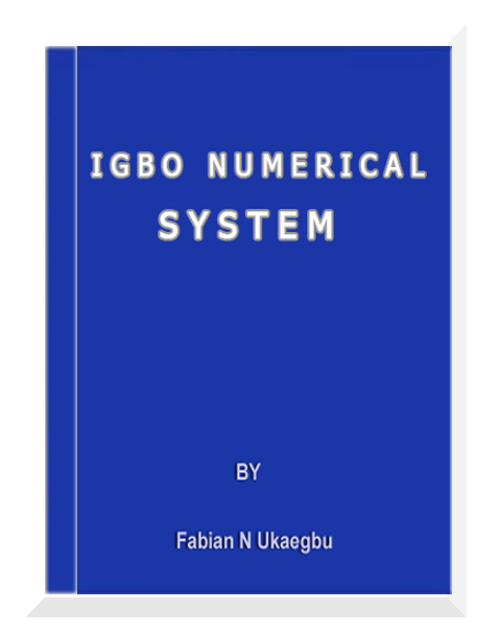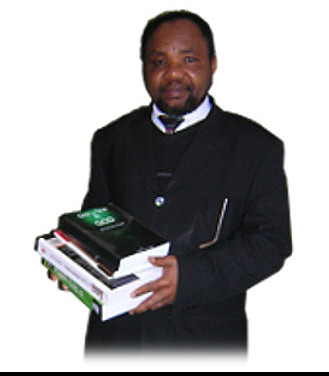
A nation is a system of thought/ideologies, practices and results. Without own manageable system, a nation is weak and incapable of discharging its duties to its citizens. Numerical system is one of the uttermost secrets of a nation. Earlier, Dibia n?agba afa had known this, but it was not valued until the same or similar system (binary) was used to design electronic system. The binary numbers are 1, 2, 3, 4, 5, 6, 7, 8, 9. They are binary because they are singular and can lead to other numbers, e.g., 10= 1+ 9; 2 x 5; 4 + 6; 11=2+9; 3+8; 4+7; 5+6, etc. This coupling system leads to mathematical combination, progression and synergy. They combine to form the BDMAS (bracket, division, multiplication, addition, subtraction). This is the basic system design and card playing scenarios from which the Analogue systems were constructed. The electronic was simply increasing the velocity and frequency radii. The number system is important in learning nature. For instance, peel an orange and count its brackets, most oranges have ten brackets. Count the fingers or toes of both hands or feet, they provide the basic mathematical tools. Does this apply in any one language and not in the rest?
Remember, our fathers counted with sticks and when they reached peak i.e. 400, they called it nnu and to make one thousand, they counted two bundles of 400 sticks and added half a bundle 200. They said that nnu abuo n'okara was 1000. At least, they knew where they reached, but a few years ago (2001), a man asked his in-law for a bride price of N20, 000. Amongst the negotiation parties were natives, who needed to understand what was said. They asked to be told in Igbo numerical terms, so that they do not float in ignorance of what they came for and should know. This never happened because the youths did not know it. What is N20, 000 in Igbo language?
In the late 1960s and 1970s, my dad indeed, during the farming days when we were cutting and breaking bamboos (achara) for taming yam, told me that nnu abuo n'okara make 1000. In 1992, I raised the issue during his visit that nnu abuo n?okara is not 1000. He laughed and asked me what it is. I told him that nnu is 1000 and 400 is ohu ano. I calibrated the Igbo numbers before him and he smiled. He believed me and said, we never thought further as you did but you need to investigate beyond 1000. I have and putting my outcome below. We need not live in the past and block the path to the future. We need not become abrasive but constructively contributing to the development of Igbo details, what is 1, 000, 000 or 1, 000, 000, 000, 000? Should we learn from Britain to say one million or billion without having its Igbo equivalent? Did we go to school to learn without inward transformation? Why should an educated Igbo person stop at foreign language, how would the local people know what he learnt? Without an attempt to internalize his learning one mocks education? If our learning stops at foreign language, how can the local people benefit and acknowledge what we learned? How will education go round, if we learn about others and do not allow others to learn about us?
The British stretched us and we cannot refuse to be stretched. We need our system to work out our values because value measures local capability. By 1800, there was no paper money. Even in 1932, when 1200 Cowries exchanged 1 shilling of 240 pence, there were not much paper money in circulation. Is paper money deceiving? Can you use foreign myth to manage your local population?
One great advantage of local language is that it gives a sense of meaning. In addition, it invites communal interest in the local management of the cost of living. Our fast tracking has ushered us wrongly and placed us at the wrong end of Western civilization. In this way, we hardly acknowledge it properly as we ought to do. Throughout the civilized world, the management of the local population within their economic (cost) capability is a priority, how did we lose control that placed us precariously at economic death point? This is not civilization, is it?
CALIBRATION
Unlike other languages that calibrate every number, Igbo does not calibrate 100; 1000; 10000; 100000; 1000000, i.e., it does not say otu-ohu (one hundred), otu-nnu (one thousand), otu-puku (one hundred thousand) or otu-puku nda (one million). It simply says: ohu (100), nnu (1000), puku (100000), puku-puku (1000000), puku nda (1000000000), puku nda-nda (1000000000000).
SEQUENCE
The mechanism through which a number picks another is the characteristic nature of numbers. Arrangement of words in a sentence is to draw up the intended meaning. Number sequence follows similarly. The meaning of a number highlights its importance in the value system. Numbers are padded according to use and intended meaning. A number without meaning does not exist. Nnu iri means 10,000. Ogu nnu means 20,000. Nnu (connective noun) pads iri in 10,000 and ogu (now an adjective) pads nnu in 20,000. Without this, 20,000 will not exist. This is why the man who wanted 20,000 naira bride price for his daughter did not know how to say it in Igbo. Thus, Igbo language became insufficient for Igbo to deal within herself and less indeed with others.
Teaching the children to become genius is the shared responsibility of the teacher and the child. The teacher, because s/he is the transferor, the child, because s/he is the transferee The culture of learning is a secret one but its transfer is less effective without a corresponding learning culture in the learner. Learning is a discovery process and the skill must identify with the learner in order to become useful. Have we kept it too late to learn? It is never too late to learn, particularly, for those rapidly losing value. When did we start to learn and speak English? We started officially, from 1933, after the settlement of the Aba Women Riots. Do we have the skills to re-learn Igbo? National secrets are buried in two places namely, language and number. The whole efforts of our parents will be wasted if we learn strangely to preserve their customs.
Commonsense is a trickery practice. To be tricked in childhood and adulthood is antinomy. It is a manipulator and constructive manipulation enhances creativity and growth. This is why we learn to grow and grow to learn better. No one can achieve this without word or number. In 1995, the Europeans started to plan for the millennium and indeed, celebrated variously. They are now planning ahead, could we ever learn from the progressive world and leave corrupt practices, which have held us back?
Since jumping from Igbo (ego ayoro/cowries) to English (monetary) system, we have taken it so and hardly looked back for what we are missing (to complement the English system). Moreover, the manner of it in 1932, when 1200 cowries exchanged 1 shilling abridged our Westernization but did not enable the development of Igbo numerical system. We now look like tortoise outside its shell with nothing to cover our nakedness. We have not been truly inspired or transformed to produce like those who taught us. The Igbo should follow the wise and stop all squabbles amongst themselves and neighbours. How can we climb high with Western education system and fail to produce similarly to acknowledge them? Thus, without evidence, our learning damns and blasphemes its sources. See how our outreach child, China transformed bamboo into forks and calabash into spoons and used them to answer present in the world Restaurants. The Igbos should wake up to something than squabbles. A national naturally blessed cannot yield to human disaster (ignorance, greed, selfishness and waste).
Initially, I took this commission lightly and abandoned as I faced more challenges. However, as the inspiration regains momentum, I progressed and thus it is done with the test of patience. I pray for your patience to understand this numbers. Strategically, if you blow fire with your mouth, your mouth might catch fire or start to irritate, but if you gather woods and put fire, they will burn and cook your food and you have mouth to eat it. This is why education is like sowing. Money has faded into its devilish oblivion as no one has been satisfied with it, but true education brings sanity of conscience and inward serenity or satisfaction.

Fabian N. Ukaegbu was born in Eastern Nigeria. He received his basic education there before travelling to the United Kingdom for further education. He qualified in Marketing, Management, Accountancy and International Relations/Diplomacy. He worked for six and the half years as a Consular Officer in the Nigeria High Commission in London and has worked also as a finance officer for 14 years with the London Borough of Hackney.
He is a prolific writer as indicated by the titles below
His Other Titles Include-